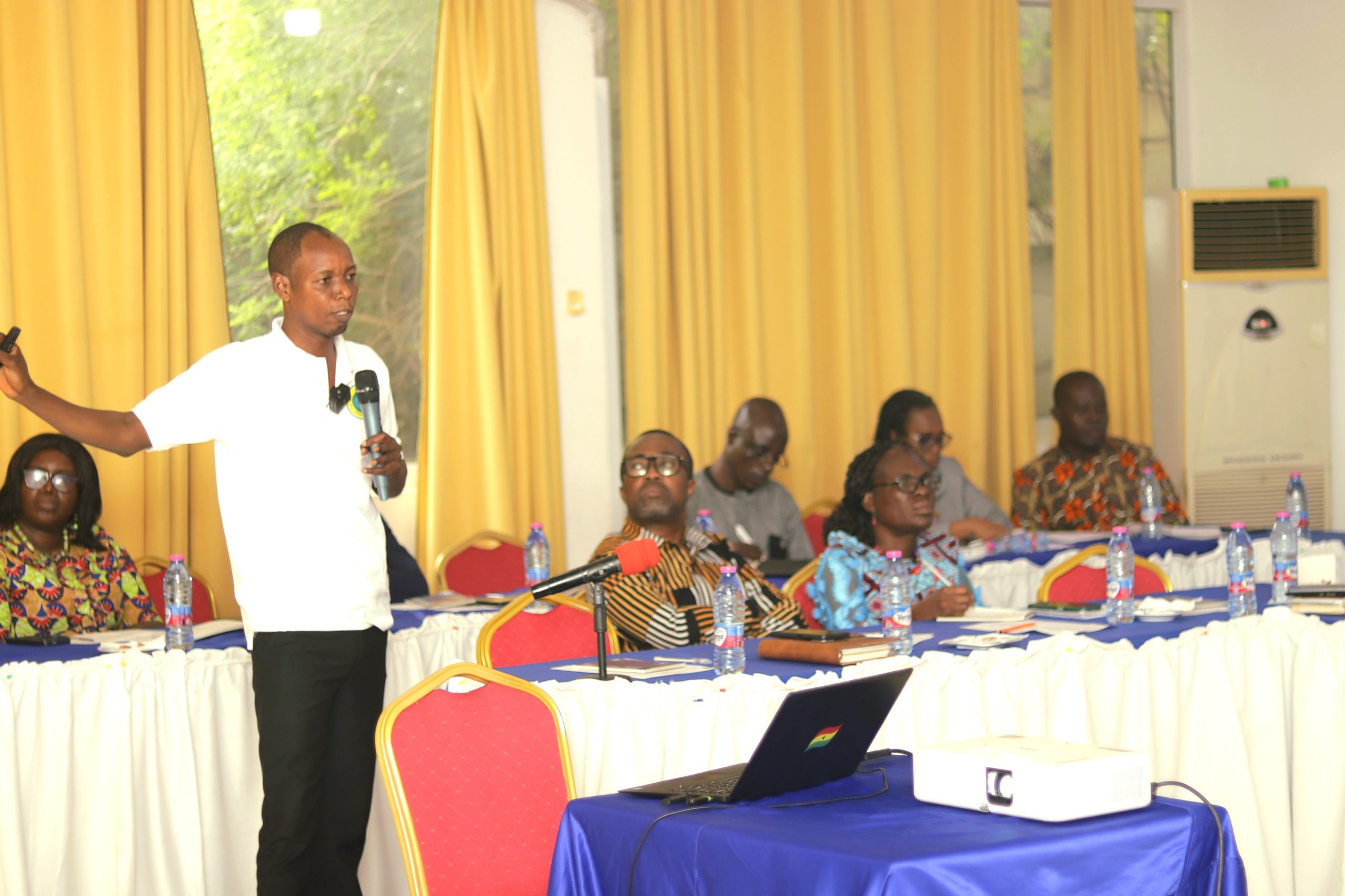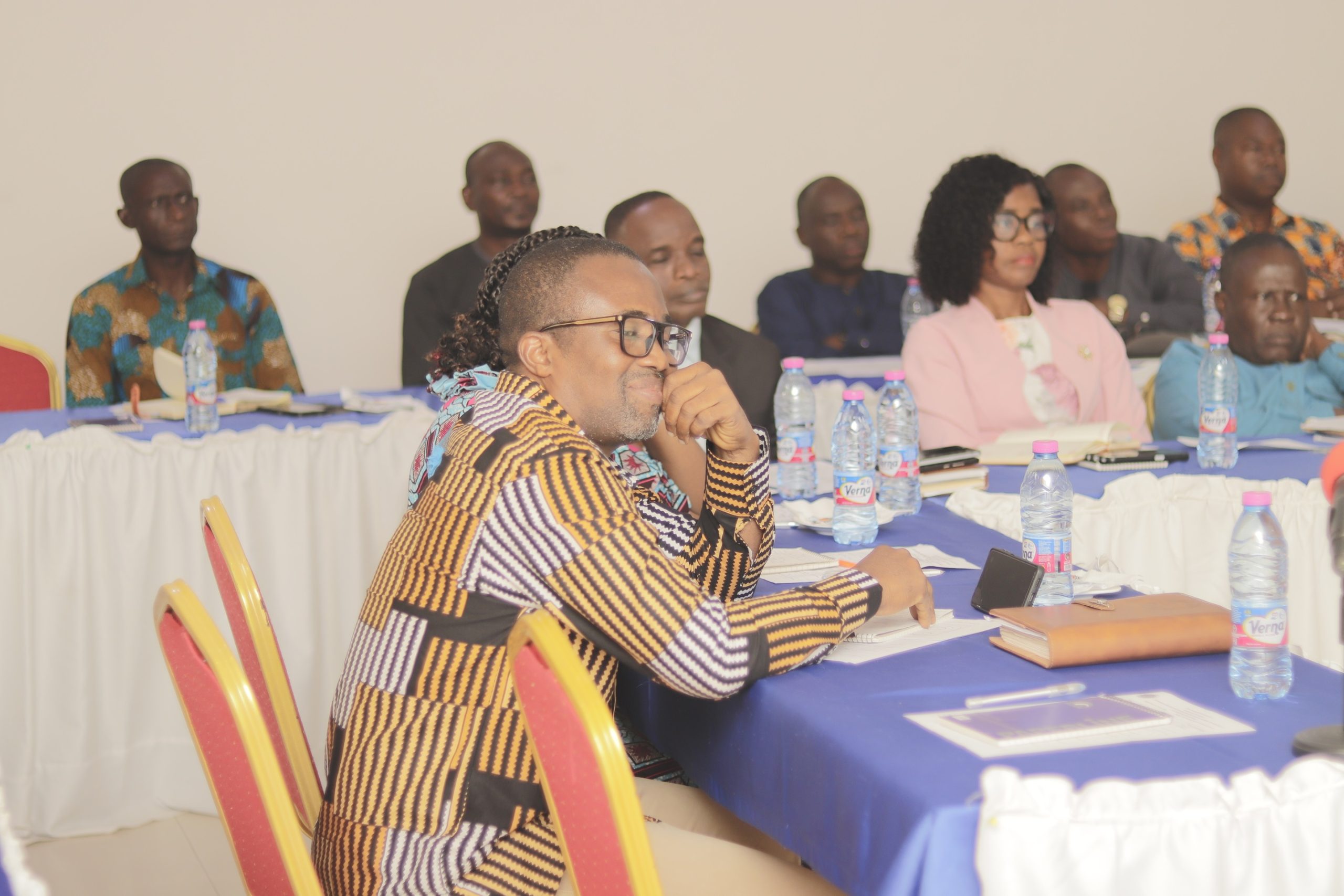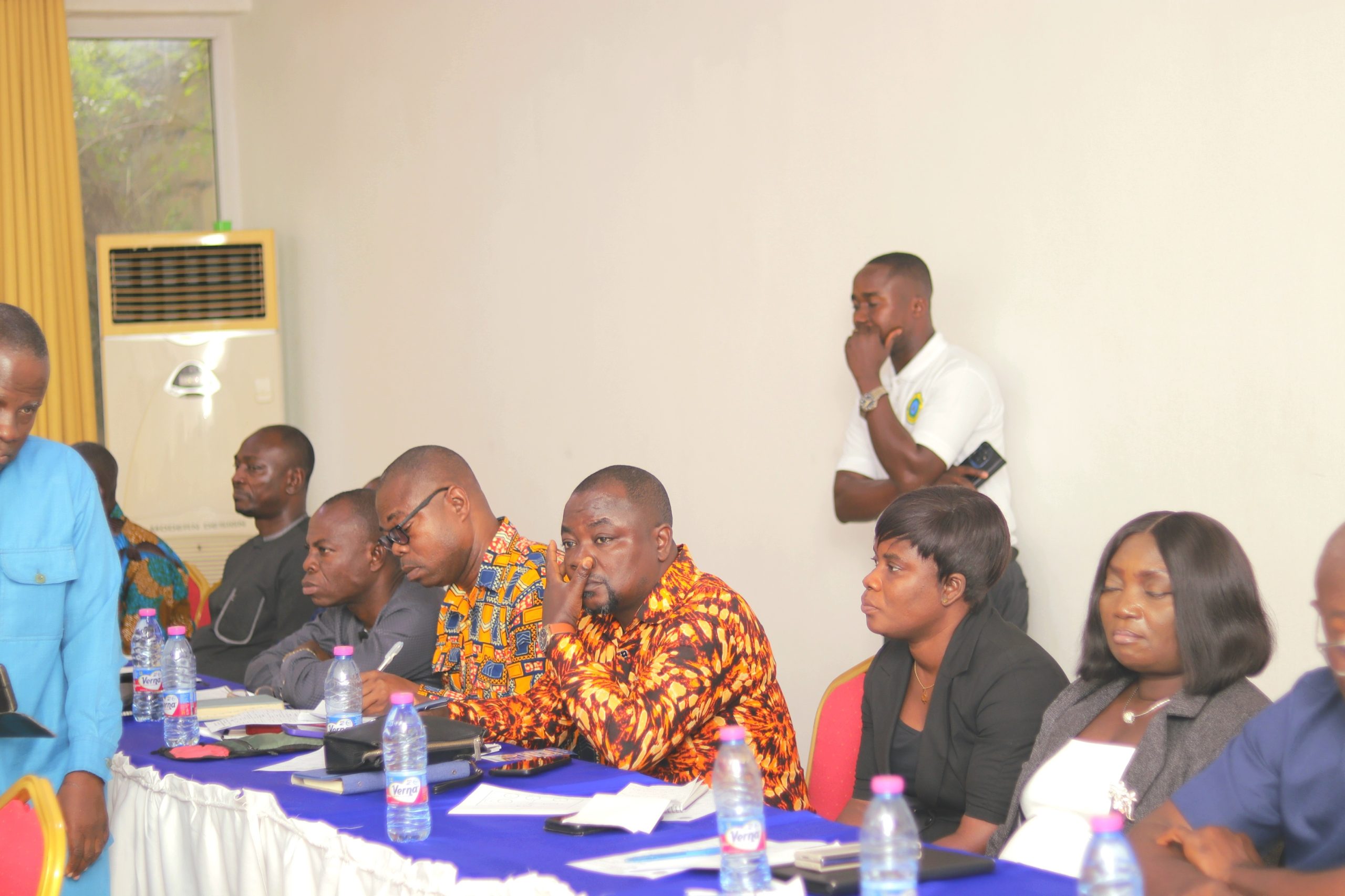Brief Report: Stakeholders’ Engagement on ICT Integration in Education
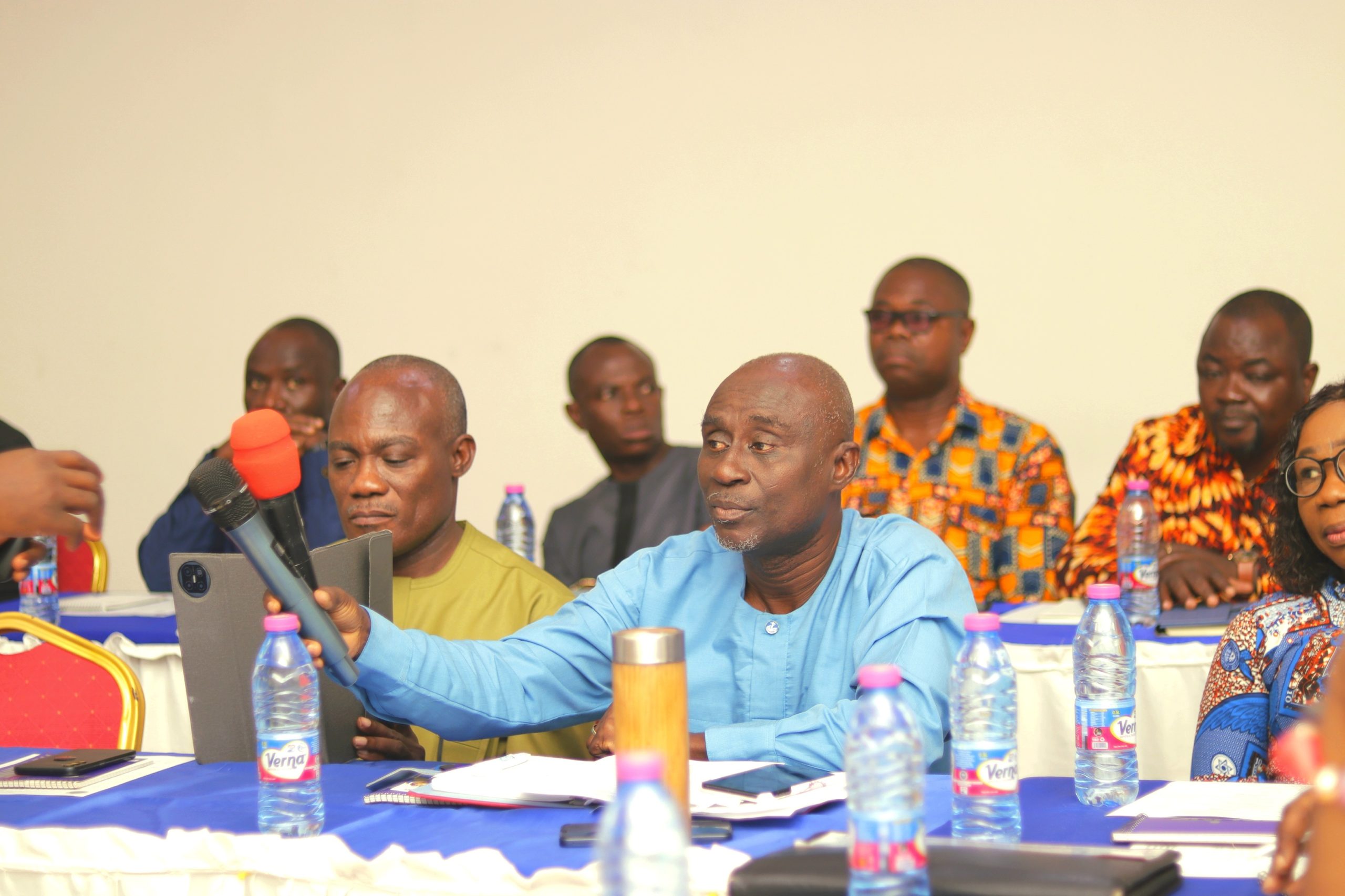 Venue: Acknac Hotel, Accra Date: Attendees: Metropolitan, Municipal, and District Directors of Education, along with key education stakeholders.
Venue: Acknac Hotel, Accra Date: Attendees: Metropolitan, Municipal, and District Directors of Education, along with key education stakeholders.
Introduction
A crucial stakeholders’ engagement forum was recently convened at Acknac Hotel in Accra, bringing together Metropolitan, Municipal, and District Directors of Education. The forum aimed to deliberate on the strategic integration of Information and Communication Technology (ICT) into Ghana’s educational curriculum, addressing both policy aspirations and practical implementation challenges. Discussions focused on current policies, existing gaps, the transformative potential of emerging technologies like Generative AI, and a clear path forward for district-level implementation.
Policies on ICT Integration into the Educational Curriculum
The forum commenced by reaffirming Ghana’s strong commitment to integrating ICT into its educational curriculum, a vision articulated in the Education Strategic Plan (ESP) and the Education Sector Medium-Term Development Plan (ESMTDP) 2022-2025. The 2019 standards-based curriculum for basic schools explicitly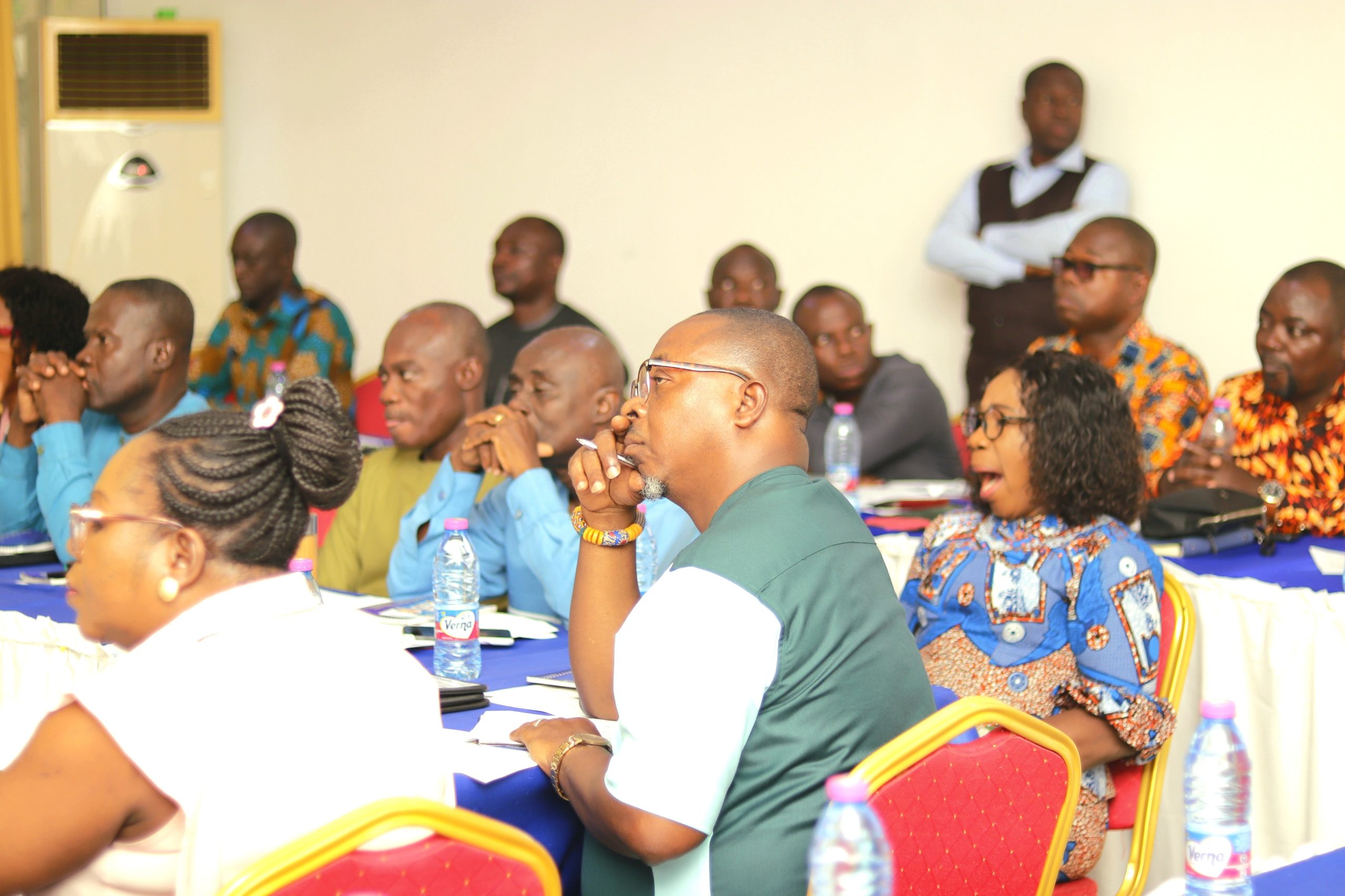 emphasizes equipping learners with 21st-century skills, including digital literacy, critical thinking, and problem-solving, with ICT serving as a crucial tool for innovation. Furthermore, Ghana has developed a comprehensive ICT Competency Framework for Teachers (ICT-CFT), a structured roadmap to enhance educators’ proficiency in utilizing digital tools for effective teaching and learning. The ESMTDP 2022-2025 specifically includes a two-year pilot project to integrate computer-based learning solutions in 50 selected Kindergartens, aiming to strengthen teacher capacity in early childhood education.
emphasizes equipping learners with 21st-century skills, including digital literacy, critical thinking, and problem-solving, with ICT serving as a crucial tool for innovation. Furthermore, Ghana has developed a comprehensive ICT Competency Framework for Teachers (ICT-CFT), a structured roadmap to enhance educators’ proficiency in utilizing digital tools for effective teaching and learning. The ESMTDP 2022-2025 specifically includes a two-year pilot project to integrate computer-based learning solutions in 50 selected Kindergartens, aiming to strengthen teacher capacity in early childhood education.
Despite robust policy frameworks and strategic intentions, a significant gap exists in the effective implementation of ICT integration across Ghanaian basic schools. A key challenge highlighted was the severe deficit in ICT infrastructure, with only 2% of deprived basic schools having functional ICT labs, and just 8% in endowed schools. This is compounded by a substantial electricity gap, as only 37% of deprived schools have access to power, far below the national average. Unreliable, expensive, and intermittent internet connectivity further exacerbates these issues, particularly in rural areas.
3. Leveraging Generative AIs and ICT as a Pedagogical Tool
The forum underscored the immense potential of leveraging Generative AIs and ICT as powerful pedagogical tools to transform learning outcomes. It was emphasized that ICT can facilitate constructive pedagogy and deep student learning by:
- Creating Interactive Lessons: Utilizing multimedia (images, videos, animations) and interactive platforms to enhance comprehension and engagement.
Fostering Critical Thinking & Problem-Solving: Employing simulations, virtual labs (e.g., Ghana EduCONNECT portal), and project-based learning (PBL) to encourage student-led investigations and real-world problem-solving.
- Facilitating Collaborative Learning: Using online platforms (e.g., Google Classroom, Moodle) to promote teamwork, discussions, and peer learning.
- Enhancing Assessment and Feedback: Employing digital tools like Kahoot!, Quizizz, and Google Forms for interactive quizzes and real-time feedback, which helps bridge learning gaps].
Generative AI, in particular, holds promise for automating administrative tasks, freeing teachers for more human-centric work, and assisting in content creation, brainstorming, and generating tailored practice problems.
4. The Way Forward for District-Level ICT Integration Programme
The forum concluded with a clear consensus on the way forward for implementing district-level ICT integration, emphasizing a multi-faceted and collaborative approach:
- Continuous Teacher Professional Development (CPD): Implement high-quality, relevant, and practical -embedded training programs that shift teachers’ mindsets towards viewing ICT as a pedagogical tool for deep learning. The Training at the district level woul cover practical digital pedagogy, data literacy, and AI literacy, ensuring teachers can critically evaluate and ethically integrate AI.
- Fostering Peer Learning Networks: Encourage and support the establishment of Communities of Practice (CoPs) among teachers, both in-person and virtually, to facilitate knowledge exchange, mentorship, and collaborative problem-solving.
Conclusion
The forum at Acknac Hotel served as a vital platform for aligning stakeholders on the critical path forward for ICT integration in Ghanaian education. By addressing infrastructural gaps, transforming teacher pedagogy, embracing emerging technologies responsibly, and fostering collaborative ecosystems, Ghana can effectively practicalize its digital education policies, ensuring that every learner is equipped with the skills necessary to thrive in the 21st-century digital world. The commitment of Metropolitan/Municipal/District Directors will be pivotal in driving these initiatives at the district level.
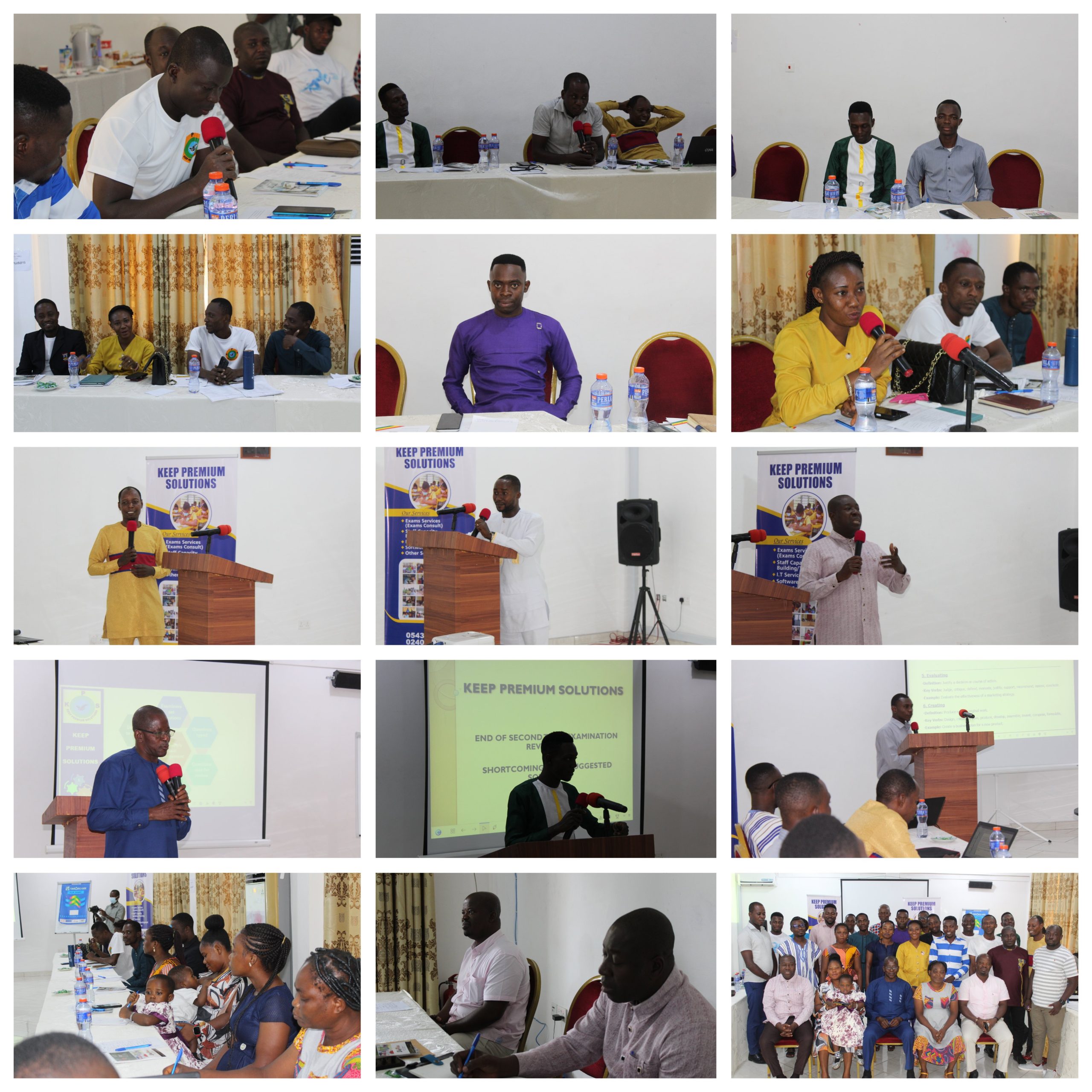
REPORT ON STAKEHOLDERS ENEGAMENT WORKSHOP ON DIALOGUE AROUND LEARNING, THE GAPS IN INTEGRATING ICT INTO TEACHING AND LEARNING HELD AT STEVEN HOTEL, HO ON 16TH JANUARY, 2025.
KEEP PREMIUM SOLUTIONS and GREATER GRACE IT FIRM in collaboration with GES, Volta has organized a one-day stakeholders engagement on how best through partnership and collaboration, we can improve education delivery in the various schools in the municipal and districts in the region.
In order to understood the problem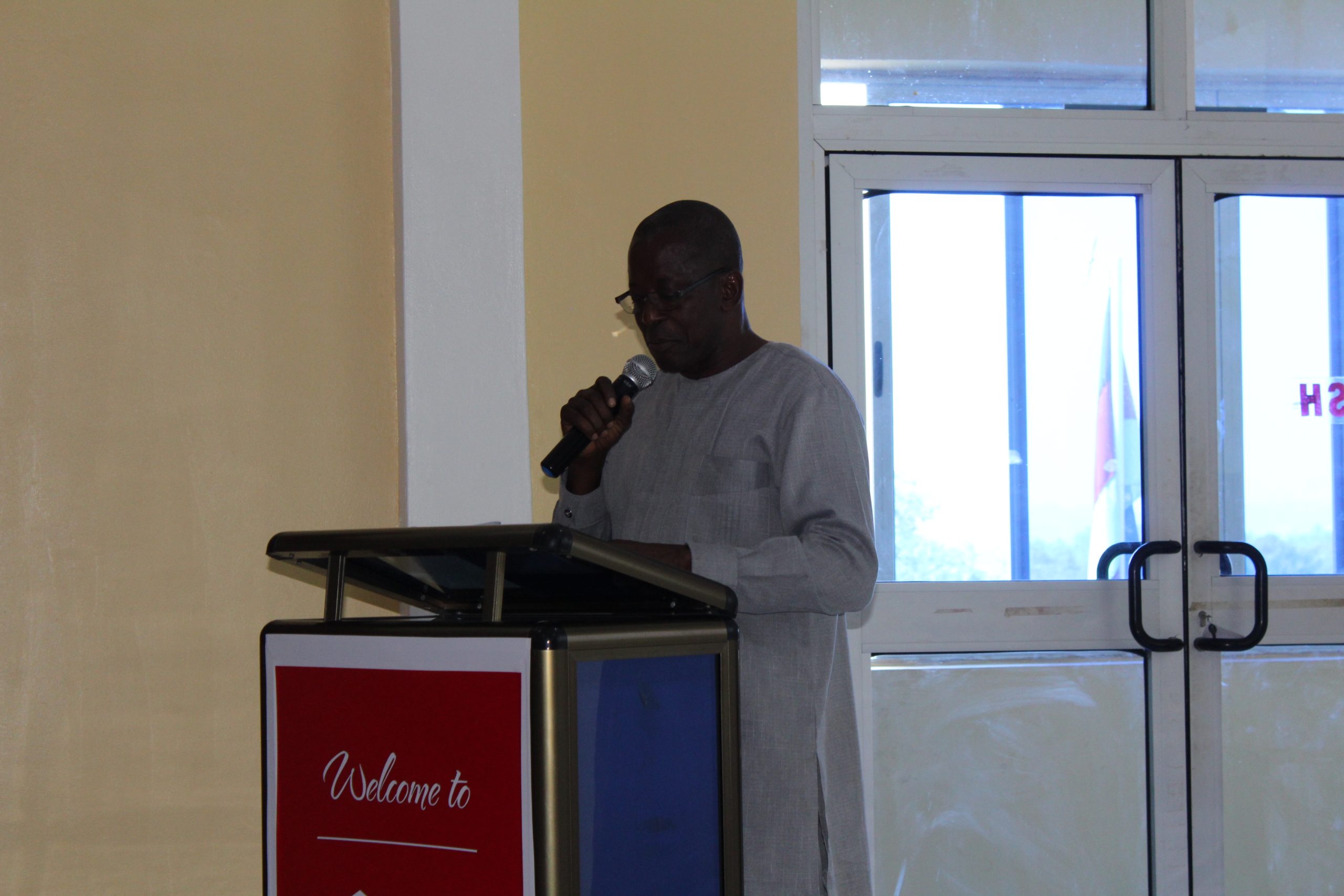 better and to holistically address the situation of content knowledge of our dear teachers, the following key critical stakeholders were invited to participate in the briefing.
better and to holistically address the situation of content knowledge of our dear teachers, the following key critical stakeholders were invited to participate in the briefing.
- Some regional Directorate staff.
- Municipal & District Directors of Education
- Representatives of Conference of Heads of Basic Schools
- Ghana National Association of Teachers (GNAT)
It is worth noting that, we had the full support of the regional directorate in all this important engagement. This was demonstrated by the massive turn out to participate in the programme. In attendance was the Regional
 Director, the Deputy Regional Director, the Regional Basic I Coordinator, the Regional Head of Supervision, the Regional Training Officer, the Regional ICT Coordinator and the Regional STEM Coordinator. Their overwhelming support to the programme demonstrated their commitment to the course of collaborating with KEEP PREMIUM SOLUTIONS and its partners in improving education delivery in the region.
Director, the Deputy Regional Director, the Regional Basic I Coordinator, the Regional Head of Supervision, the Regional Training Officer, the Regional ICT Coordinator and the Regional STEM Coordinator. Their overwhelming support to the programme demonstrated their commitment to the course of collaborating with KEEP PREMIUM SOLUTIONS and its partners in improving education delivery in the region.
The success of the programme cannot be recorded without the presence of the Municipal and District Directors of Education. The Municipal and District Directors of Education have thrown their weight and support of the programme by honouring the invitation in their numbers. Even those who could not make it due to circumstances beyond their control have sent a representation.
The programme started at 10:00am and the opening prayer was said by Togbe Dzidoah I, the Regional Basic I Coordinator. Before the welcome address, participants did self-introduction, and everyone was duly recognised.
The welcome address was taken by the Board Chairman of KEEP PREMIUM SOLUTIONS. In his address, he highlighted the need for strong partnership between the Directors of education and the board of KEEP PREMIUM SOLUTIONS. He underscored how technology is rapidly changing our world and why teachers need to be abreast with the tech world.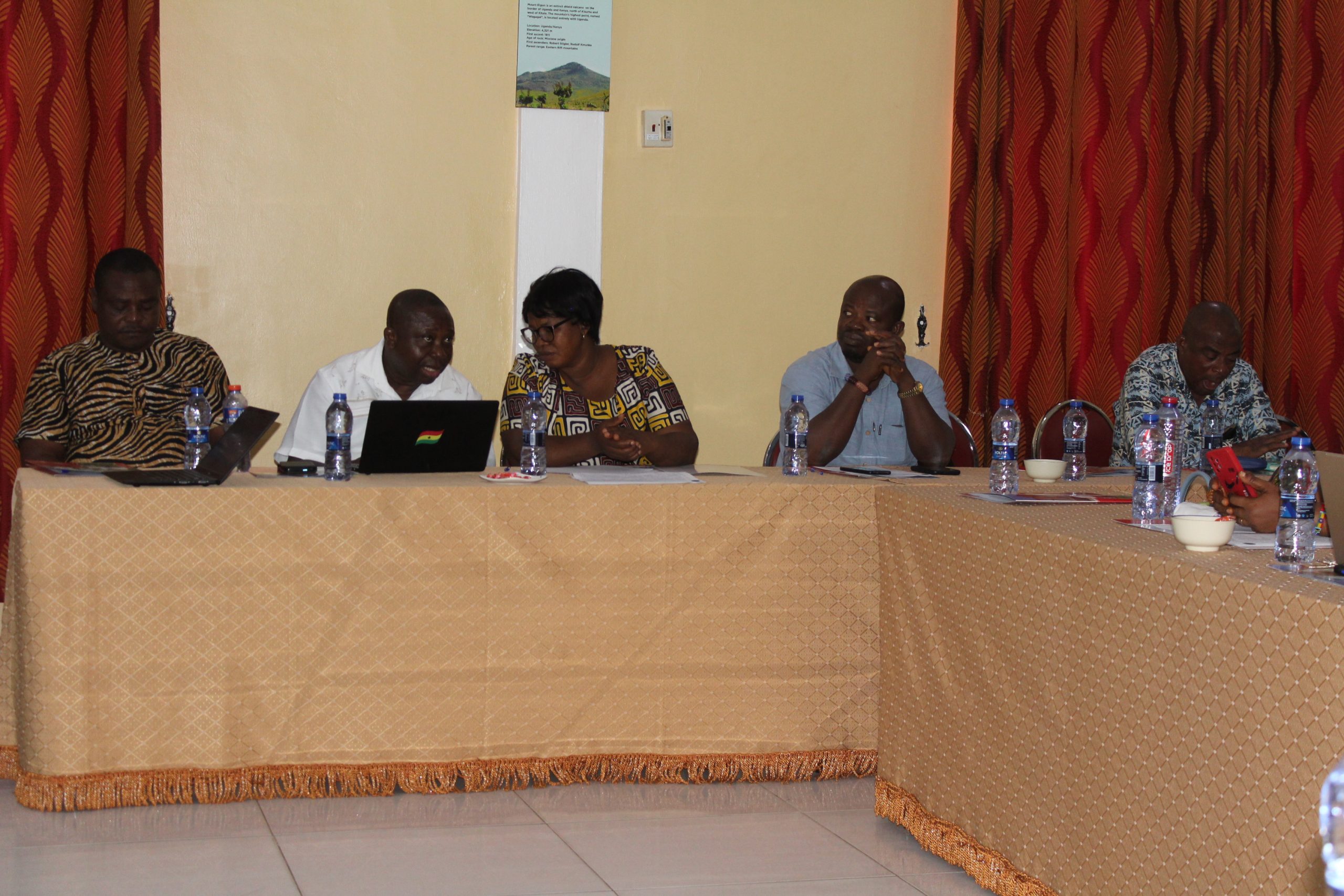 In his address, he noted that Directors directly or indirectly direct the affairs and determine what should be done to improve quality education delivery in the districts. They accept blame or accolade for success or failure of education delivery outcomes in their jurisdiction. There is a need that KEEP PREMIUM SOLUTIONS and GREATER GRACE IT FIRM should closely work with Directors, COHBS, GNAT and other key stakeholders in ensuring quality education delivery in the region through the implementation of their proposed programme on ICT integration into the teaching and learning process that will ensure that all learners can thrive in an increasingly digital world.
In his address, he noted that Directors directly or indirectly direct the affairs and determine what should be done to improve quality education delivery in the districts. They accept blame or accolade for success or failure of education delivery outcomes in their jurisdiction. There is a need that KEEP PREMIUM SOLUTIONS and GREATER GRACE IT FIRM should closely work with Directors, COHBS, GNAT and other key stakeholders in ensuring quality education delivery in the region through the implementation of their proposed programme on ICT integration into the teaching and learning process that will ensure that all learners can thrive in an increasingly digital world.
In the address of GREATER GRACE IT FIRM, the board chairman reiterated their commitment to partner with key stakeholders in the education sector in areas that will help the Directors to achieve their key deliverables especially in staff capacity building in education technology.
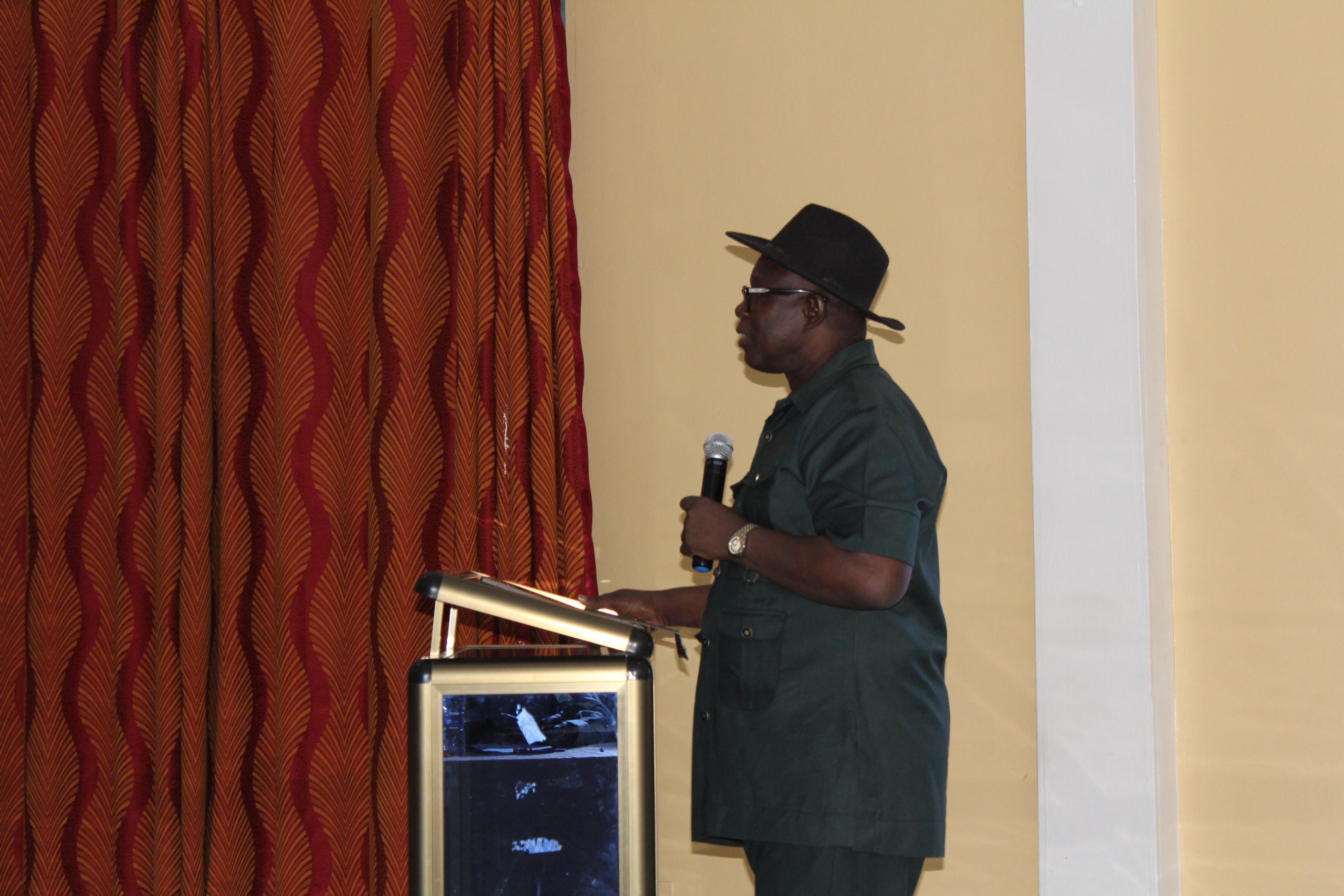 In the Regional Director’s address, he acknowledged the efforts of the two companies coming to partner with the region to help improve learning outcome. He enumerated how internet of things, computer programming and software engineering have transformed the modern world. He said, “Those who learn continue to inherit the earth and those who refuse to learn, they live in the world that does not exist.” He explained the Forth Industrial Revolution which is Artificial Intelligence and Robotics have monumentally transformed the world. He explained that it is time teachers should take key interest in developing their professional skills in ICT for that is why the government is paying them Continuous Professional Allowance. He explained the Regional Directorate’s commitment to have the programme roll out in the districts through the help of the Directors because of its benefits to the learners.
In the Regional Director’s address, he acknowledged the efforts of the two companies coming to partner with the region to help improve learning outcome. He enumerated how internet of things, computer programming and software engineering have transformed the modern world. He said, “Those who learn continue to inherit the earth and those who refuse to learn, they live in the world that does not exist.” He explained the Forth Industrial Revolution which is Artificial Intelligence and Robotics have monumentally transformed the world. He explained that it is time teachers should take key interest in developing their professional skills in ICT for that is why the government is paying them Continuous Professional Allowance. He explained the Regional Directorate’s commitment to have the programme roll out in the districts through the help of the Directors because of its benefits to the learners.
The first presentation was a short video about Chinese Education System and Africa Education System. The video revealed the gap between the two systems most especially the Africa Education systems which of more theories than practically oriented. After the video, the participants have enumerated the possible causes of the theorical education system as
- Education inherits from the colonial masters
- The language barriers
- Lack of practical tools
- Lack of practical skills among the educators who taught the learners
This presentation was followed by presentation 2 and presentation 3 that highlighted the gap identified among teachers which is a hindrance to the success of the new curriculum implementation. The factors such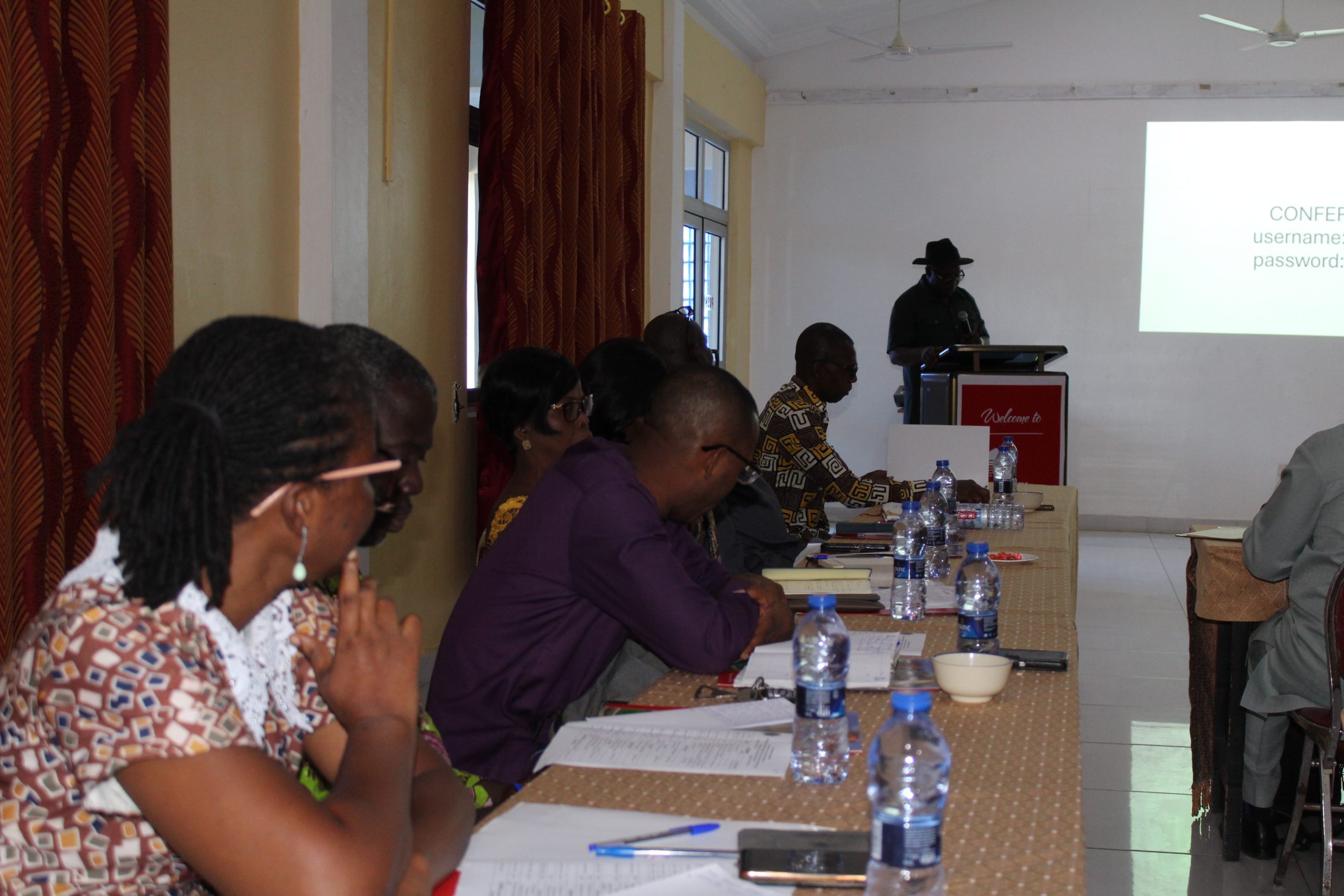
- About 90% of teachers don’t have the ICT knowledge to enable them integrate ICT into their teaching
- About 90% of teachers wards who are school going age, are not in the public schools
- About 90% of teachers in administration who are to ensure the implementation of the new curriculum, their wards are equally not in the public schools
- Teachers confirmation of knowledge gap in the new curriculum implementation through a survey taken where most of them confirmed that they need refresher training on the new curriculum.
- The lack of content teaching and learning materials to support learning
- Lack of research skills among teachers
- Inability of teachers to use appropriate teaching and learning materials to support their teaching
After presenting the gaps, highlights of some solutions that are contained in the training manual which will be used to train the teachers at the district level were mentioned as
- ICT skills training that are tailored to the implementation of the new curriculum such as database management, basic programming skills, coding, software engineering among others. Teachers would be taken through these skills to understand what they are to teach in the classroom
- Guiding teachers to locate appropriate teaching resources on the internet and how to download them for usage in the classroom
- Proper ways of integrating ICT into the teaching and learning process
- The concept of data representation and programming structure
- Attention Crisis among learners leading to low concentration in class
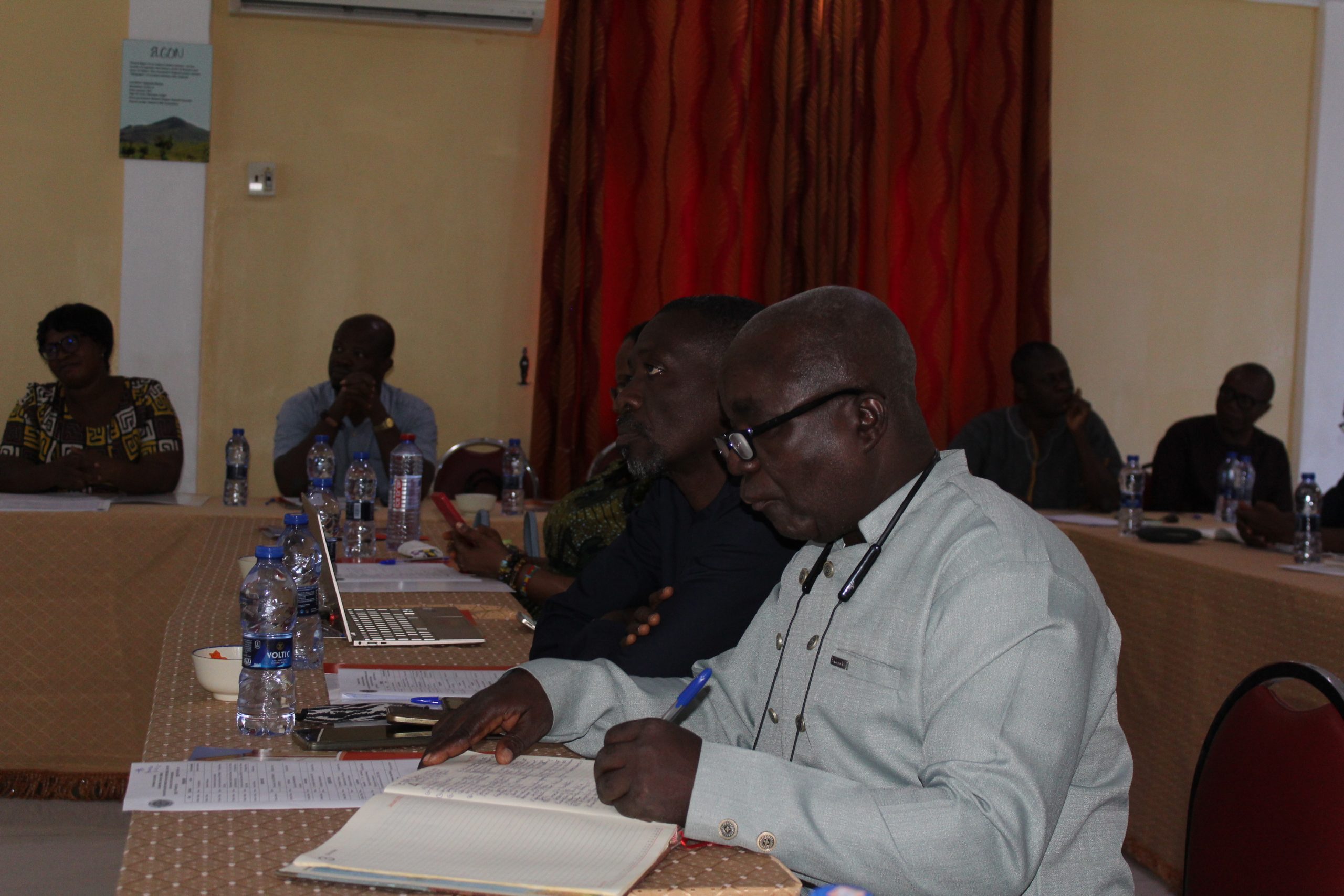 The last item that was taken before the participants pledged their support to the programme was the next step / way forward after Director’s engagement. They have listed three levels of engagement in respect of the training at the district level.
The last item that was taken before the participants pledged their support to the programme was the next step / way forward after Director’s engagement. They have listed three levels of engagement in respect of the training at the district level.
Phase 1: Regional Engagement – Meeting with Directors, COHBS and GNAT (done)
Phase 2: District Support Facilitators Training Workshop – Five (5) people are earmarked to be trained to support the facilitation at the district level. They are; the Training Officer, District ICT Coordinator, JHS ICT teacher, Primary ICT Teacher and One person to be selected by the Municipal / District Director
Phase 3: Municipal / District level teacher training: The training at the district level will be organized in zones / cohorts with not more than 100 participants in a group. Two days will be spent at each cohort to enable the participants get the concept and the skills required.
In view of the phase 2 activities, the region is zone into four (4) cohorts as described in the table below.
| Dates | Cluster | Districts |
| Wednesday, 22nd Jan, 2025 | Cluster 1 | Ketu South, Ketu North, Keta, Anloga, Akatsi, Akatsi North |
| Monday, 27th Jan, 2025 | Cluster 2 | South Tongu, North Tongu, Central Tongu |
| Wednesday, 29th Jan, 2025 | Cluster 3 | Hohoe, Afadzato South, Kpando, North Dayi, South Dayi |
| Friday, 31st, Jan, 2025 | Cluster 4 | Ho municipal, Ho central, Agotime Kpetoe, Adaklu |
The above are the proposed tentative dates as discussed at the workshop.
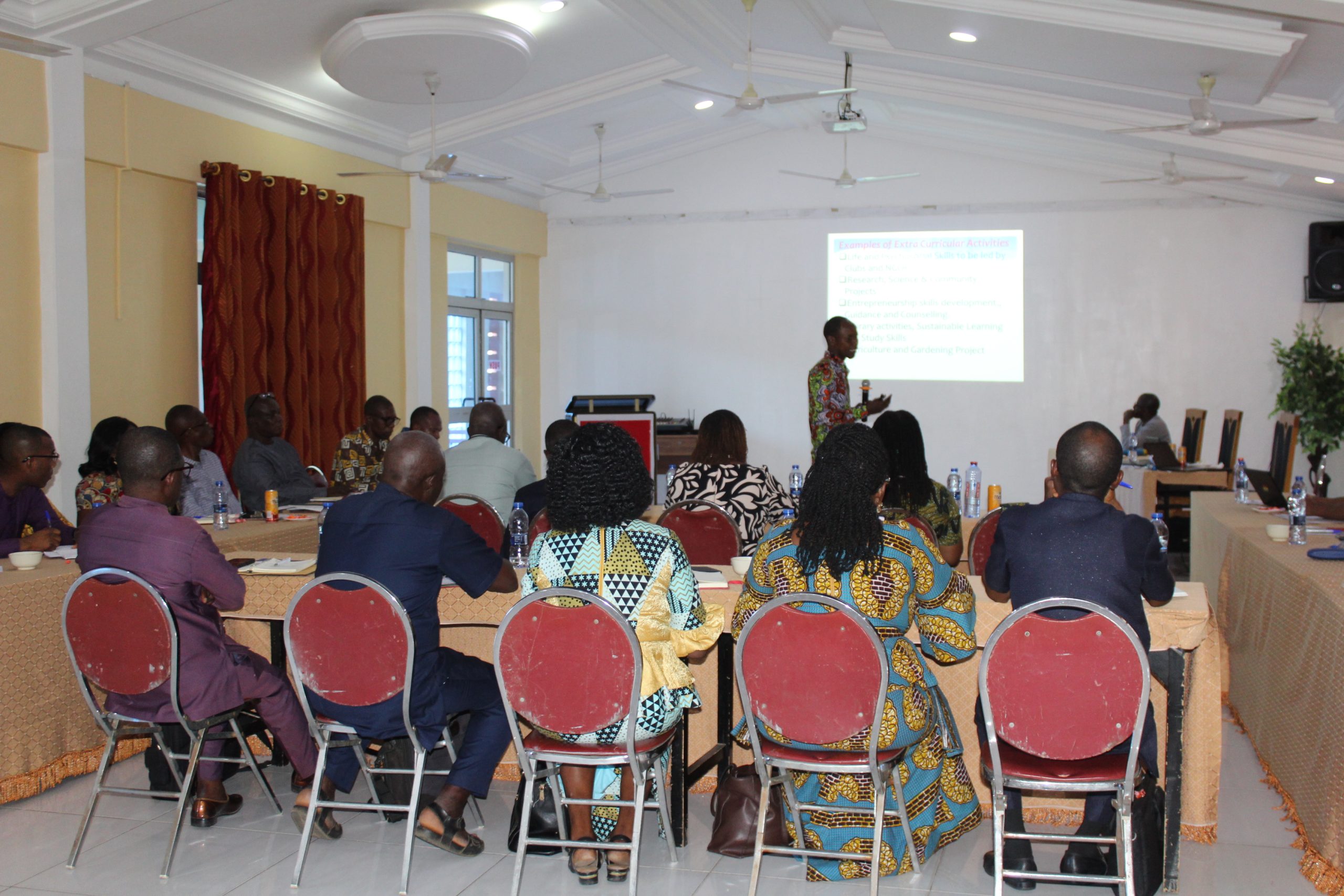 In the closing statements, COBHS has pledged their support to cooperate with the Directors to have successful training workshop. Likewise, Directors also pledged their support to the success of the workshop before, during and after the training.
In the closing statements, COBHS has pledged their support to cooperate with the Directors to have successful training workshop. Likewise, Directors also pledged their support to the success of the workshop before, during and after the training.
After the closing prayer was said at exactly 2pm and the meeting was closed, and participants have taken their lunch before departing to their various destinations.
In conclusion, the programme was a success. The attendance was great and cooperation was massive. We looked forward to having the same cooperation with the Directors until the completion of this programme.
Report by
Edwin Ketormanya
Programme Coordinator
Keep Premium Solutions

